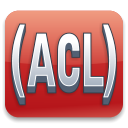Common Lisp Implementations
Open source
SBCL
Steel Bank Common Lisp (SBCL) is a high performance Common Lisp compiler. It is open source / free software, with a permissive license. In addition to the compiler and runtime system for ANSI Common Lisp, it provides an interactive environment including a debugger, a statistical profiler, a code coverage tool, and many other extensions. SBCL runs on a number of POSIX platforms, and experimentally on Windows.
Clozure CL
Clozure CL (often called CCL for short) is a free Common Lisp implementation with a long history. Some distinguishing features of the implementation include fast compilation speed, native threads, a precise, generational, compacting garbage collector, and a convenient foreign-function interface.
Clozure CL is distributed under the terms of the Apache License, version 2.0.
Embeddable CL
ECL (Embeddable Common-Lisp) is an interpreter of the Common-Lisp language as described in the X3J13 Ansi specification, featuring CLOS (Common-Lisp Object System), conditions, loops, etc, plus a translator to C, which can produce standalone executables.
ECL supports the operating systems Linux, FreeBSD, NetBSD, OpenBSD, OS X, Solaris and Windows, running on top of the Intel, Sparc, Alpha, PowerPC and ARM processors.
ABCL
Armed Bear Common Lisp (ABCL) is a full implementation of the Common Lisp language featuring both an interpreter and a compiler, running in the JVM. Originally started to be a scripting language for the J editor, it now supports JSR-223 (Java scripting API): it can be a scripting engine in any Java application. Additionally, it can be used to implement (parts of) the application using Java to Lisp integration APIs.
Clasp
Clasp is a new Common Lisp implementation that seamlessly interoperates with C++ libraries and programs using LLVM for compilation to native code. This allows Clasp to take advantage of a vast array of preexisting libraries and programs, such as out of the scientific computing ecosystem. Embedding them in a Common Lisp environment allows you to make use of rapid prototyping, incremental development, and other capabilities that make it a powerful language.
CLISP
CLISP is a Common Lisp implementation by Bruno Haible, then of Karlsruhe University, and Michael Stoll, then of Munich University, both in Germany. It implements the language described in the ANSI Common Lisp standard with many extensions.
Commercial

Allegro CL
Allegro CL ® is a powerful dynamic object-oriented development, especially suited to enterprise-wide, complex application development. Complex applications with billions of objects are made easy with Allegro CL. The complexity of today's software applications and the explosion of data size are pervasive in all fields ranging from Life Sciences to Manufacturing to Financial Analytics. Allegro CL is the most effective system for developing and deploying applications to solve these complex problems in the real world.
LispWorks
LispWorks ® is an implementation of ANSI Common Lisp running on Windows, x86_64 Linux, ARM Linux, Mac OS X, FreeBSD, AIX, x86/x64 Solaris and SPARC/Solaris. LispWorks is source code compatible across all supported platforms. LispWorks offers many features including an advanced Common Lisp compiler, interpreter, runtime system, language extensions, CAPI portable GUI toolkit and the LispWorks IDE.
For a complete list, see Wikipedia's big list of CL implementations